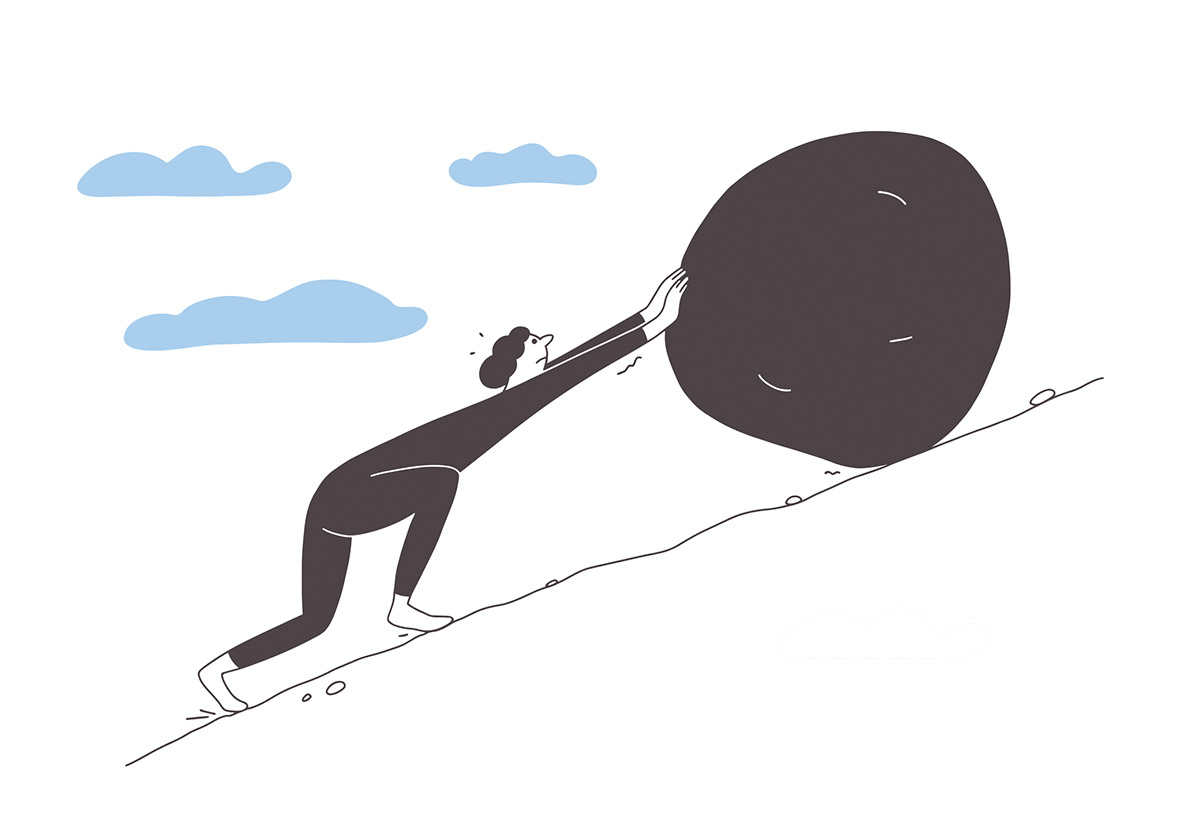
Each of us has to deal with change. Change that is necessary, purposeful, and planned can provide a wonderful opportunity for growth. However, change that comes out of nowhere can be disruptive.
Disruption pulls us out of our comfort zones and shakes our foundations. It erodes our sense of control and often elicits emotional reactions, such as anxiety, anger, disorientation, and depression. Think about major disruptions you’ve lived through—the COVID-19 pandemic, for example. Were you scared? Anxious? Disoriented? Unsure what tomorrow would bring? Those feelings are normal. What’s important is that you understand them and recognize you’re operating in a state of heightened emotion because you’re facing disruption in your life.
“People judge their reality based on their emotions, but during disruptions, emotions are a horrible gauge of reality,” explains Tony Chatman. Chatman is a professional speaker and business trainer, author of “The Force Multiplier: How to Lead Teams Where Everyone Wins,” and an expert on navigating disruption. “We look for hope in areas where we shouldn’t look for hope. We feel anger and frustration and use those emotions as the lens for how we look at other people and how we interpret events.”

Tony Chatman
That’s not productive. It leads to paralysis as we hope in vain for the disruption to resolve itself. But disruptions rarely do that with any certainty. Rather, the only thing that’s certain about disruption is that it will happen again. Every time disruptions happen, we say we’re experiencing something unprecedented. But are we? Think about the past 25 years: the pandemic, the financial crisis, 9/11. Disruption may also come in smaller doses not associated with major global events, such as new technology or shifts in consumer buying habits. These things happen, and they will happen again.
Rather than retreating, surrendering to unproductive emotions, and waiting for things to return to the way they were, how will you address the next disruption, whether it’s a global event or an unforeseen change in your photography business? Will you sit back and hope things get better? Or will you pivot and reposition your business at the forefront of the new reality?
“When we are challenged, we often think we have only two options: hold on or let go,” says Chatman. “But in truth we have more options. When others are frozen, waiting for things to get back to normal, will you take the opportunity to not only pivot but to reinvent yourself and leap ahead of everyone else?”
To set yourself up for success in the face of disruption, Chatman recommends starting with the PAR process:
Pause. Stop what you’re doing. Pull yourself out of the situation. There’s no sense in doing the same thing if your situation has changed dramatically.
Assess. Review the situation. Take emotions out of it and rethink things from a logical perspective.
Respond. Try to do what’s best for everyone involved. Take action in a way that’s practical and will put your business at the forefront of the new reality.

COGNITIVE REFRAMING
Next, Chatman recommends following the four R’s of cognitive reframing. This process helps you take practical, productive action in a way that sets up your business to weather the storm of disruption and to be more resilient in the face of change.
Redefine. Reframe things by thinking about the situation in different terms. Chatman uses his experience during the pandemic as an example. Stuck in a two-bedroom condo in New York City at the epicenter of the initial outbreak, he was on lockdown with his wife and two sons. It felt like a loss because he couldn’t travel or interact with clients in person, but then he shifted his thinking. “Was I locked down or was I safe?” he asks. “Was I prevented from living my life, or was I offered an opportunity to do something different? There was an opportunity there, and I had to pay attention to it.”
When faced with disruption, try to redefine the situation for your business. Is there a hidden opportunity lurking beneath the surface?
Replace. Don’t think only about what you’ve lost but what you could gain. Again, thinking about the recent example of the pandemic, if you were prevented from running your business as normal, what did you gain? Time to learn a new skill or advance your professional education? Did you discover new ways to connect with people virtually or rebuild old relationships? When some doors close, others open. Ready yourself to walk through them.
Reinvent. This is the biggest challenge for most people. Start by considering the value you bring. Think like them and listen to your clients. Instead of stubbornly pursuing the same business model, think about what your clients need. If you work in business or commercial settings, take it a step further and think about what your clients’ clients need. How can you help them and provide that next level of service? When you’ve considered these things, you can start to reinvent your business in a way that is more flexible for the new, post-disruption reality.
Release. Let go of the things holding you back, especially your own notions about what you do and your fear of starting over. Release preconceived notions about your niche as well as your ideas about what has or hasn’t worked in the past.
When you go through this process, you’re going to be left with things that are either valuable or not valuable. Remove your emotional attachments to things that are no longer of value and allow yourself to move in a new direction.
A central theme of this process is a realignment of expectations. Disruption is a time to change your assumptions. Regardless of how much change happens around you, you’re still an expert. You’ve spent years building a craft, and those abilities don’t disappear during disruption. You need to figure out how to reapply them.
What often stops people from reinventing themselves is the fear of starting over, rebuilding from a place where they’re not already exceptionally skilled and confident.
“But anything worth doing is worth doing poorly at first,” says Chatman. Don’t worry about failing. It will happen. There’s no way around it. Accept that inevitability and remove the pressure to be perfect. Go through the learning curve to become the new expert in this new area of focus. It’s worth the journey.
“Disruption seems like an obstacle, but it’s really an opportunity. It’s an opportunity to rebuild, rebrand, and create new expertise. If you do those things, you’ll not only survive disruption, you’ll figure out a way to thrive.”
Jeff Kent is editor-at-large.


